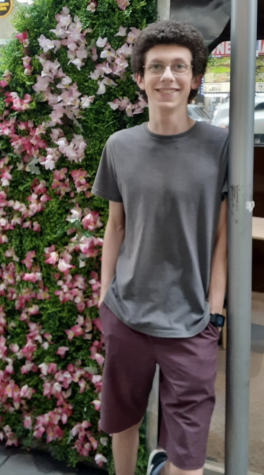How Northeastern’s On-Campus Journalism Engages International Students
The staff of the 2022 Fall semester Global Observer team at their first meeting in September 2022
December 2, 2022
Northeastern University prides itself on its expansive variety of programs to help international students adjust to their new environment and get involved with the community. So why do the university’s on-campus journalism programs predominantly remain so unexplored?
While Northeastern’s journalism school is relatively small, it is undeniable that journalism itself plays a sizable role in the lives of college students. For young adults learning to independently navigate the world around them, an awareness and understanding of the nuances and complexities of current events is a valuable asset. Therefore, with a large percentage of international students in attendance at Northeastern, it remains to be seen why so few impact the university’s student journalism. To investigate, Global Observer contributor Darin Zullo spoke with student staff from both publications to hear their insights on the level of international student involvement in campus reporting.
The Huntington News and the Global Observer are two of the biggest outlets for student journalism at Northeastern. Huntington News covers events on campus and around the city pertinent to Northeastern’s student population. By contrast, the Global Observer is an international perspectives magazine written by a small group of international student reporters, producing news written by and for a diverse range of students. On the subject of international student turnout at Huntington News meetings, Marta Hill, editor-in-chief, noted that it was “hard to measure or quantify,” making it difficult to “speak to a longer term trend.” She also acknowledged that the paper holds a certain position in the context of the university, and as a result, it does not necessarily attract many international students.“We take a pretty traditional college newspaper role on campus and are covering campus news that applies to everyone. Campus events, city news, stuff like that,” Hill said.
Jessie Wang, associate editor of the Global Observer, revealed that not only is the publication more internationally focused, but the majority of the students who write and edit for it are graduate students. This, she explained, is a simple matter of cause-and-effect. “I think one of the reasons is because probably we have more international students in graduate level. So we have more grad students writing for the Global Observer,” Wang explained.
Oishika Hota, a first-year graduate student and contributor for the Global Observer, built upon this sentiment, explaining that it attracts a primarily graduate audience because the Huntington News is more heavily advertised to undergraduates. However, Hota observed that the Global Observer “can be more accessible on social media.”
Elisabeth Hadjis, a second-year graduate student who also writes for the Global Observer, elaborated on its openness from the perspective of skill level in addition to diversity, explaining that “there’s not really a barrier for entry” and that “you don’t have to be super familiar with journalism” to get involved. This lack of a skill barrier, she observed, also helps break down barriers that could potentially restrict diversity.
Hadjis explained, “We have editors and faculty advisors who work with student editors to make sure that students who maybe don’t feel so comfortable with American journalism and journalistic writing can still explore this field and the issues that they’re passionate about and then feel confident that the product is still a great piece of journalism.”
All four interviewees pointed out, however, that the Huntington News can be a great place to start as an undergraduate, demonstrating that neither publication is superior to the other and that they each have their own purposes and strengths. As is to be expected, international students are more attracted to the Global Observer because it gears itself towards Northeastern’s international community and thrives on having a diverse voice.
Marta Hill explained that while attendance of international students at Huntington News meetings is not particularly high, this is more likely a result of other opportunities being sought by these students rather than them feeling excluded from the program – such as the Global Observer.
“We have some really strong contributors who are international students …but the Global Observer, which is run through the [Journalism] school, is the publication that I think gets the most international students,” Hill described.
Oishika Hota expressed gratitude for having an on-campus outlet to give her cultural background the attention it deserved, but found that it was not without having to make a fair share of accommodations for a new audience. Hota revealed, “First of all, we don’t follow APA style in India. So that’s different, and then the spellings are completely different because our spellings are very British. So my articles are in the British spelling and the other half is in American because I’m consciously taking an effort to change the spellings …when I write about India, I have to give a lot more context.”
Although the Global Observer gives international students a voice of their own, it requires international students to give context to their culture rather than talking about it to a familiar audience. Despite this, Oishika’s sentiments reinforced that the pros certainly outweigh the cons.
Hota said, “If there’s someone who wants to know about my country, I feel like there’s a space where they can go to… And so when I write about India, that’s something I’m comfortable with. And it’s nice, you know, to tell people about my country and what it’s like.”
While student journalism at Northeastern is not solely limited to these two publications, both play a significant role in providing a space for journalists on campus to find their voice and hone their skills. Both outlets exemplify the range that student journalism can have in terms of diversity.
As a result, Northeastern’s journalism programs do, for the most part, successfully combat the pitfalls of journalism that restrict diversity. Hopefully, this will allow Northeastern’s students to become a new generation of reporters, editors, and publishers to bring some much needed diversity to the profession.


